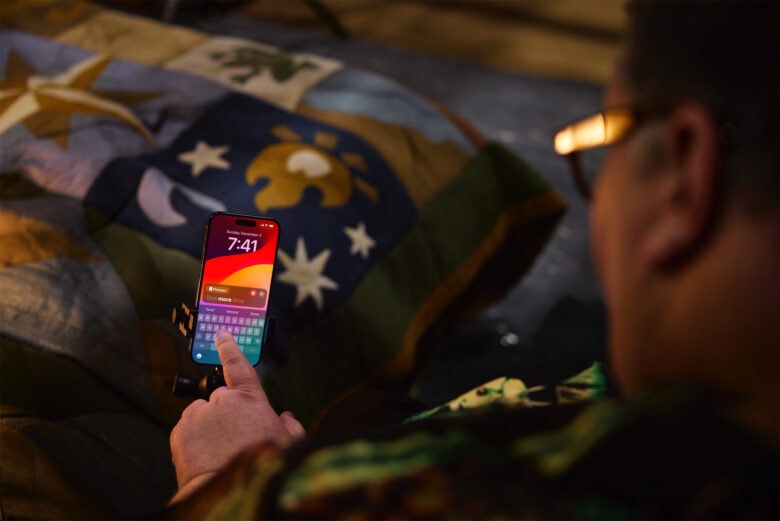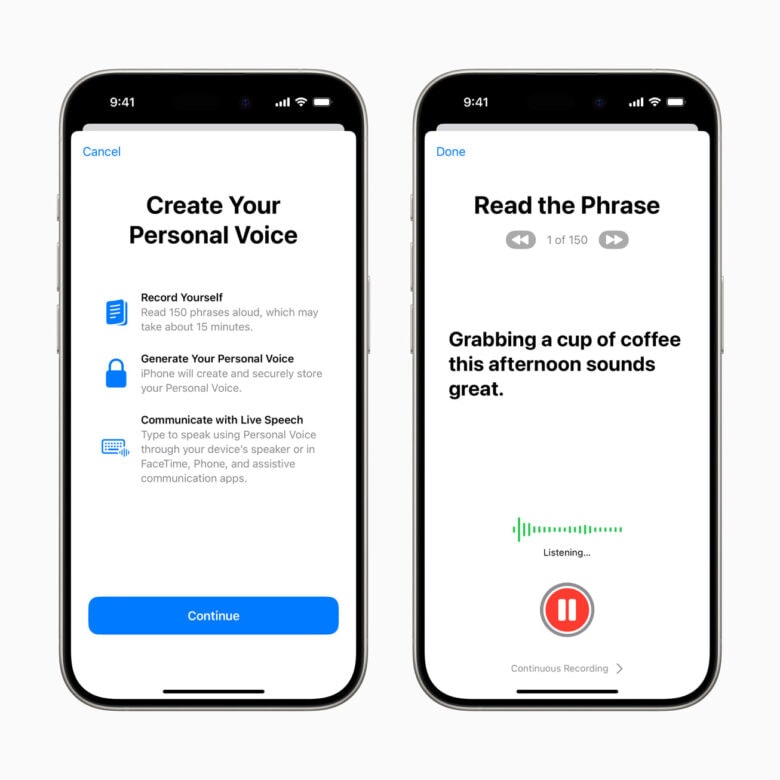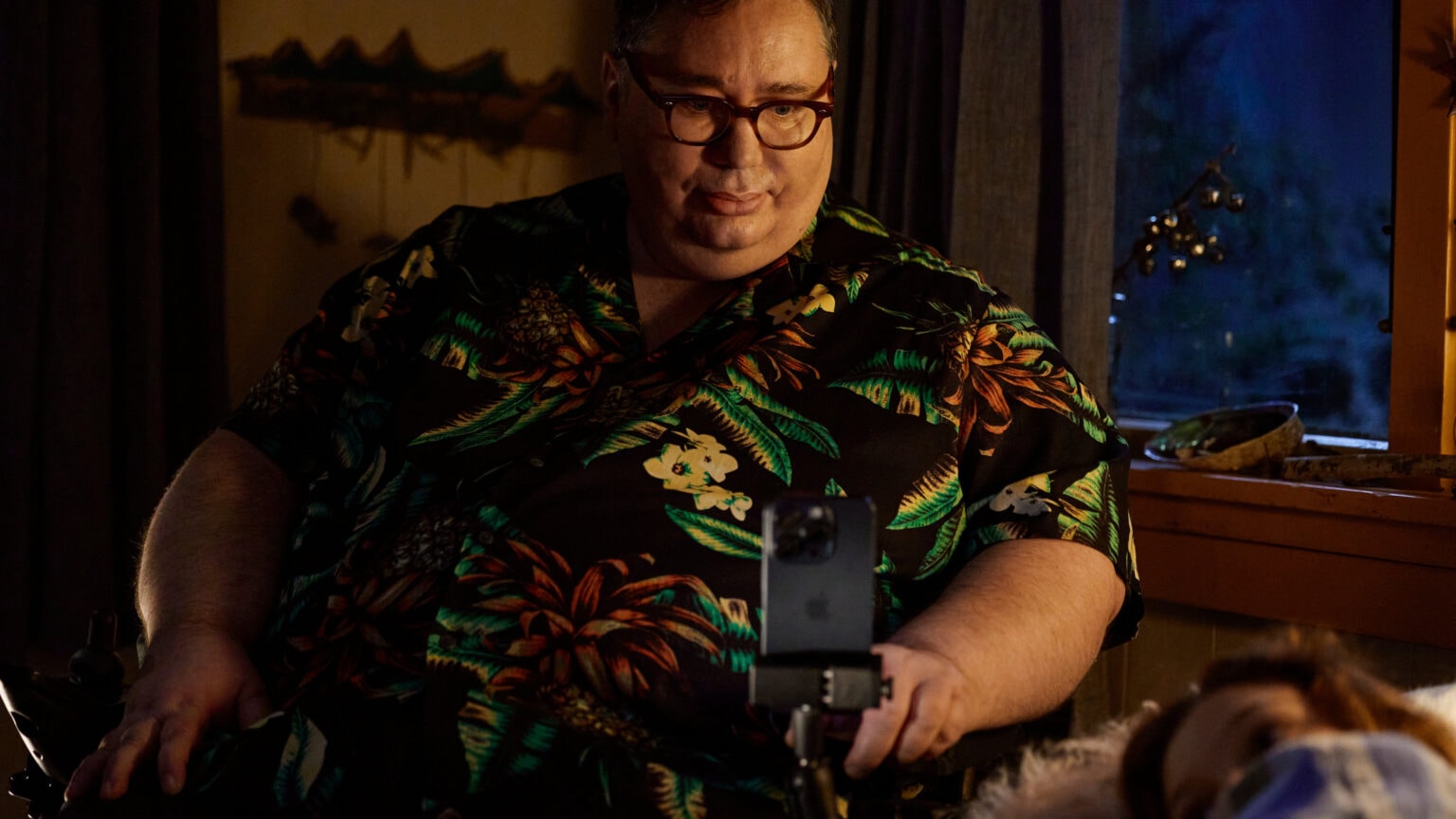The new Personal Voice feature in iOS 17, iPadOS 17 and macOS Sonoma can restore a person’s voice even after they lose it for any reason.
Apple demonstrated that quite well Thursday in an article and video featuring a disability advocate suffering facioscapulohumeral muscular dystrophy (FSHD).
Personal Voice in macOS Sonoma, iOS 17 and iPadOS 17 brings lost voices back
In a feature story with a surprisingly trippy and heartstring-tugging video, Apple told the story of New Zealand physician, academic researcher and disability community leader Tristram Ingham, who speaks English and te reo Māori. But the disease is slowly taking away his voice.
“I find that by the end of a long day, just bringing up my voice gets a bit harder,” he says, recounting a frustrating experience. “I had to give a conference presentation just last month, and it turned out that, on the day, I wasn’t able to deliver it because of my breathing. So I had to get someone else to present for me, even though I had written it.”
But through Personal Voice, he narrated Apple’s new video, created for International Day of Persons with Disabilities. It features a little girl searching the countryside for her lost voice with the help of a very nice — and very shaggy — bespectacled creature. You can watch it below.
FSHD causes progressive muscle degeneration that typically begins in the face, shoulders and arms. In 2013, Ingham started using a wheelchair. Since then, he has found his voice changing, and he could lose it altogether.
“I’m very aware on a professional level that using my voice is getting harder,” he said. “I am aware that when I get more fatigued, I get quieter, harder to understand. But on a human level, I put that out of my mind, because what can one do about it?”
Personal Voice arrives with iOS 17, iPadOS 17, and macOS Sonoma

Photo: Apple
Personal Voice in iOS 17, iPadOS 17 and macOS Sonoma helps “users at risk of speech loss can create a voice that sounds like them by following a series of text prompts to capture 15 minutes of audio,” Apple said. Using neural text-to-speech technology, the feature trains neural networks on-device to enable speech while protecting users’ privacy.
“Disability communities are very mindful of proxy voices speaking on our behalf,” Ingham said. “Historically, providers have spoken for disabled people, family have spoken for disabled people. If technology can allow a voice to be preserved and maintained, that’s autonomy, that’s self-determination.”
Ingham used Personal Voice for “The Lost Voice” video. He read a new children’s book of the same name out loud on his iPhone. He said he was surprised how easy it was to use and how much it sounded like him.
“It was really straightforward, I was quite relieved,” he said. “I’m really pleased to hear it in my voice with my style of speaking, rather than an American voice, or an Australian voice or a U.K. voice.”
Personal Voice works with Live Speech

Photo: Apple
Here’s more of Apple’s description of both Personal Voice and Live Speech:
With Personal Voice and Live Speech, users at risk of speech loss can create a voice that sounds like them, and type what they want to say and have the phrase spoken aloud.
Live Speech, another speech accessibility feature Apple released this fall, offers users the option to type what they want to say and have the phrase spoken aloud, whether it is in their Personal Voice or in any built-in system voice. Users with physical, motor, and speech disabilities can communicate in the way that feels most natural and comfortable for them by combining Live Speech with features like Switch Control and AssistiveTouch, which offer alternatives to interacting with their device using physical touch.
“Technology can be critical for preserving one’s own natural-sounding voice,” said Blair Casey, executive director of Team Gleason, a nonprofit group supporting individuals with amyotrophic lateral sclerosis (ALS), another progressive condition that causes speech loss. “Our voices are part of our identity. When diseases like ALS threaten to take away the ability to speak, tools like Personal Voice can help anyone continue to sound like their unique, authentic self.”
For its part, Apple is happy to contribute.
“At Apple, we design for everyone, and that includes individuals with disabilities,” said Sarah Herrlinger, Apple’s senior director of Global Accessibility Policy and Initiatives. “Communication is a crucial part of what makes us human, and we’re committed to supporting nonspeaking users as well as those who may be at risk of speech loss.”
Watch the video:
And Ingham has more reasons to use Personal Voice than his work as an advocate and as a senior research fellow at the University of Otago in Wellington, New Zealand’s Department of Medicine.
“I’ve got three grandchildren,” he said. “I love to read them bedtime stories. They come and stay the night quite often, and they love stories about sea creatures, tsunamis, things like that. And I just want to be able to ensure that I can keep doing that into the future.”
“You never know what is going to happen,” he added. “And when you have something that is so precious, a taonga — a treasure — I think we should do anything we can to make sure we keep hold of that.”
Source: Apple


